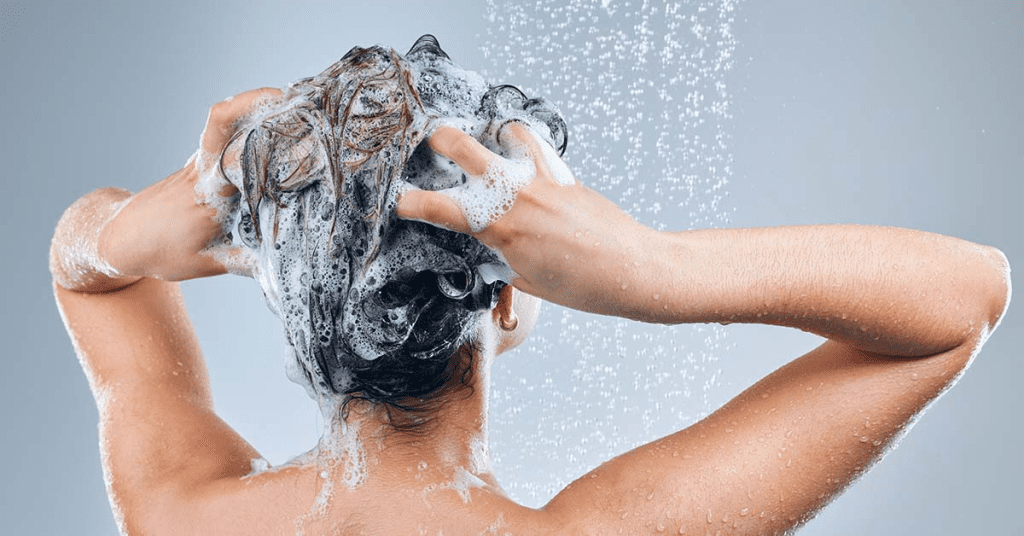Washing your hair is one of those daily routines we don’t give much thought to—until we’re faced with conflicting advice on how often it should be done. Should you wash your hair every day, or is that too much? Could you be harming your hair by not washing it frequently enough? The truth is, the answer varies depending on your hair type, scalp health, and personal habits. However, dermatologists and hair care experts agree on one thing: neglecting to wash your hair can have some serious consequences. In this article, we dive deep into why proper hair hygiene is crucial and what could happen if you don’t wash your hair as often as you should.
The Risks of Not Washing Your Hair Regularly

Skipping hair washes may seem harmless, especially if you’ve heard that it’s good to let your scalp “detox” or “balance its natural oils.” But experts warn that failing to cleanse your hair can lead to a range of issues—from scalp irritation to potential hair loss.
Board-certified dermatologist Dr. Jenny Liu emphasized on TikTok that washing your hair too infrequently allows the buildup of sebum (natural oils), dead skin cells, and dirt. “This buildup can lead to an overgrowth of Malassezia yeast, which contributes to dandruff and scalp inflammation,” she explained. The combination of oxidative stress from accumulated sebum and dead skin creates an unhealthy environment for hair growth.
In short, dirty hair isn’t just about appearance; it can contribute to more severe scalp conditions that hinder healthy hair growth. Regular cleansing helps to maintain scalp health, which is key to keeping your hair looking and feeling its best.
Daily Hair Washing: Good or Bad?
Some people swear by washing their hair every day, claiming that anything less leaves them feeling greasy and uncomfortable. While a daily wash may seem like the ultimate solution for cleanliness, experts caution against it.
Dr. Joshua Zeichner, director of cosmetic and clinical research at Mount Sinai Hospital’s Department of Dermatology, warns that washing your hair too often can strip away the natural oils that keep it moisturized. “Over-washing can make your hair dry and brittle, and it may even irritate your scalp,” he says. This is especially problematic for people with already dry or sensitive skin.
On the other hand, people with very oily scalps or those who exercise regularly may need more frequent washing. The key is finding a balance that keeps your hair and scalp healthy without overdoing it.
When Washing Your Hair More Often Makes Sense

It’s important to realize that hair care is really about scalp care. Your scalp, much like the skin on your face, can benefit from regular cleansing. If you let sebum and dead skin cells build up, they can clog your hair follicles and potentially lead to scalp inflammation, dandruff, and even hair thinning.
For this reason, Dr. Jenny Liu advises against going too long without washing your hair. While some people believe in “training” their hair to produce less oil by washing it less frequently, this theory doesn’t hold up to scientific scrutiny. In fact, the idea that your scalp will “self-clean” over time is a myth.
Dr. Liu points out that for those with hair loss concerns, maintaining a healthy scalp is crucial for promoting hair growth. This means you may need to wash your hair more frequently than you think—especially if you notice dandruff, itchiness, or excessive oil.
Why Washing Less Often Works for Some People
While it’s important to avoid leaving your hair unwashed for too long, washing too often can be equally harmful—especially for people with fragile or textured hair. Cosmetic chemist Perry Romanowski explains that wet hair swells, making it more prone to damage. “Moving shampoo or conditioner around in your hair can damage the hair cuticle,” he says. This can lead to split ends, dullness, and increased difficulty when styling.
Elizabeth Hughes, an integrative dermatologist, suggests that those with particularly delicate hair may want to wash less frequently. “Some people with fragile hair may only need to wash their hair every other week,” Hughes says.
This highlights how diverse hair care needs can be, and why there’s no one-size-fits-all solution. Your hair type, lifestyle, and even your styling habits play a role in determining how often you should wash.
How Often Should You Wash Your Hair? It Depends on Your Hair Type

Ultimately, the ideal hair-washing routine depends on a variety of factors. People with oily scalps or who sweat a lot may need to wash their hair every day or every other day. Conversely, those with dry or curly hair may benefit from washing their hair less frequently—perhaps just once a week.
Kasey Bertucci, hairstylist and co-founder of Salon 120 West in Boston, advises that those who prefer frequent washes should aim for every two or three days. Meanwhile, people with curly or textured hair may only need to wash their hair every five to seven days.
According to the American Academy of Dermatology, people with very tight curls or textured hair can even go as long as two weeks between washes without issue. Experimenting with different routines and products will help you figure out what works best for your unique hair type.
Tips for Healthy Hair and Scalp Care

While the frequency of washing matters, how you wash and care for your hair is just as important. Here are some expert-backed tips to help maintain the health of both your hair and scalp:
- Use coconut oil for conditioning rather than olive oil, which isn’t as effective for moisturizing the scalp, says Dr. Liu.
- Limit anti-dandruff shampoo to two or three times a week. Using it daily can dry out your scalp and leave your hair feeling brittle. Leave it in for five minutes before rinsing.
- Colored hair benefits from less frequent washing and sulfate-free shampoos to preserve moisture and color vibrancy.
- Fine hair tends to get oily faster and may require more frequent washing. Avoid products with heavy silicones like dimethicone, which can weigh the hair down.
- Be mindful of product buildup. Styling products can accumulate on the scalp, causing irritation. If you use products regularly, consider washing your hair more frequently to prevent this buildup.
Find Your Perfect Hair-Washing Routine
When it comes to washing your hair, one size does not fit all. Depending on your hair type, scalp health, and lifestyle, the ideal frequency will vary. Regular washing is essential for maintaining a healthy scalp, but over-washing can strip away necessary oils and cause damage. Finding the right balance may take some trial and error, but the payoff is worth it—a healthy scalp and shiny, manageable hair.
By following expert advice and paying attention to your own hair’s needs, you’ll be able to craft a hair-washing routine that keeps your scalp healthy and your hair looking its best. Keep experimenting with different products, washing frequencies, and techniques until you find what works for you.


